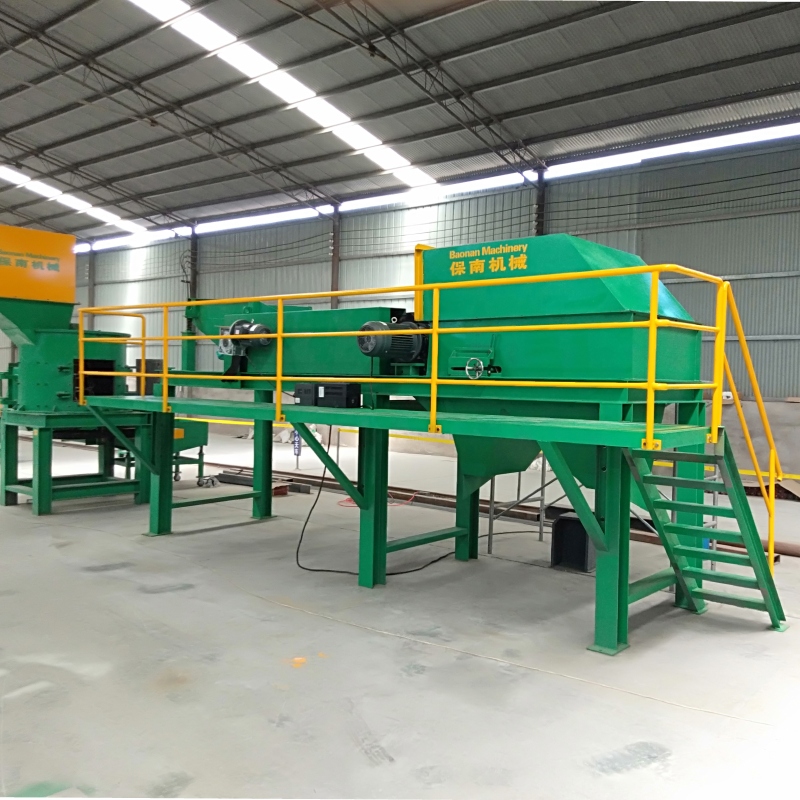

डिस . 05, 2024 05:12 Back to list
The Importance of Solid Waste Recycling Plants
In an era where environmental conservation is of utmost importance, solid waste recycling plants have emerged as pivotal institutions in managing waste effectively and sustainably. As urbanization and population growth continue to escalate, the amount of waste generated is increasing at an alarming rate, making efficient waste management systems crucial. Solid waste recycling plants serve as complex facilities designed to process various types of waste materials, transform them into reusable resources, and mitigate the detrimental impacts of waste on the environment.
One of the primary goals of solid waste recycling plants is to reduce the volume of waste that ends up in landfills. Traditionally, landfills have been the go-to solution for waste management. However, this method poses several challenges, including the release of greenhouse gases, potential soil and water contamination, and the consumption of valuable land resources. By diverting waste from landfills and implementing recycling processes, these plants play a significant role in reducing environmental burdens and conserving natural resources.
Recycling plants operate through a series of systematic processes. Initially, waste is collected and sorted into different categories based on material types, such as plastics, metals, glass, and organic waste. This sorting process is essential, as it ensures that each material can be processed appropriately. Advanced recycling plants utilize technology, including conveyor belts and automated sorting systems, to enhance efficiency and accuracy in the separation process. Manual sorting is also employed to capture any materials that may have been incorrectly sorted or to recover valuable materials that can otherwise be lost.
Once sorted, each category of material undergoes specific processing procedures. For example, plastics are often cleaned, shredded, and melted down to create new products, while metals are melted and reformed into sheets or new products. Glass is crushed, melted, and molded into new glass containers. Organic waste, on the other hand, can be composted and returned to the soil as nutrient-rich fertilizer. These processes not only conserve natural resources by reducing the need for virgin materials but also save energy, as recycled materials often require less energy to process than new materials.

Beyond environmental benefits, solid waste recycling plants contribute to economic development. They create job opportunities across various sectors, from waste collection and sorting to processing and management. The recycling industry has the potential to foster jobs that are crucial for local economies, making it an attractive avenue for investment. Moreover, as the demand for recycled materials grows, so does the potential for innovation and entrepreneurship in the recycling sector, leading to new technologies and business models focused on sustainability.
Community involvement is another vital aspect of effective waste management and recycling. Public awareness campaigns play a crucial role in educating individuals about the importance of recycling and proper waste disposal. When communities are engaged and informed, participation in recycling programs increases, resulting in higher recycling rates and reduced waste generation. Solid waste recycling plants often collaborate with local governments and organizations to enhance educational initiatives and promote sustainable practices among residents.
However, solid waste recycling plants also face several challenges. Contamination of recyclable materials can significantly hinder the recycling process, leading to increased costs and potential waste. Public perception and misinformation about recycling can further complicate efforts to enhance recycling rates. Addressing these challenges requires continuous education, investment in advanced technology, and collaboration between various stakeholders, including government agencies, businesses, and the community.
In conclusion, solid waste recycling plants are crucial components of a sustainable waste management system. They provide significant environmental, economic, and social benefits, helping to mitigate the adverse effects of waste while promoting resource conservation and community engagement. As we continue to face the challenges posed by increasing waste generation, it is imperative to invest in effective recycling infrastructure, promote awareness, and foster collaborative efforts to ensure a cleaner, greener planet for future generations. Embracing recycling not only preserves the environment but also signifies a commitment to sustainable development and responsible stewardship of our planet's resources.
Latest news
Troubleshooting Common Eddy Separator Problems
NewsJul.04,2025
The Role of Metal Recycling Plants in Circular Economy
NewsJul.04,2025
The Impact of Recycling Line Pickers on Waste Management Costs
NewsJul.04,2025
Safety Features Every Metal Shredder Should Have
NewsJul.04,2025
How Industrial Shredders Improve Waste Management Systems
NewsJul.04,2025
How Cable Granulators Contribute to Sustainable Recycling
NewsJul.04,2025